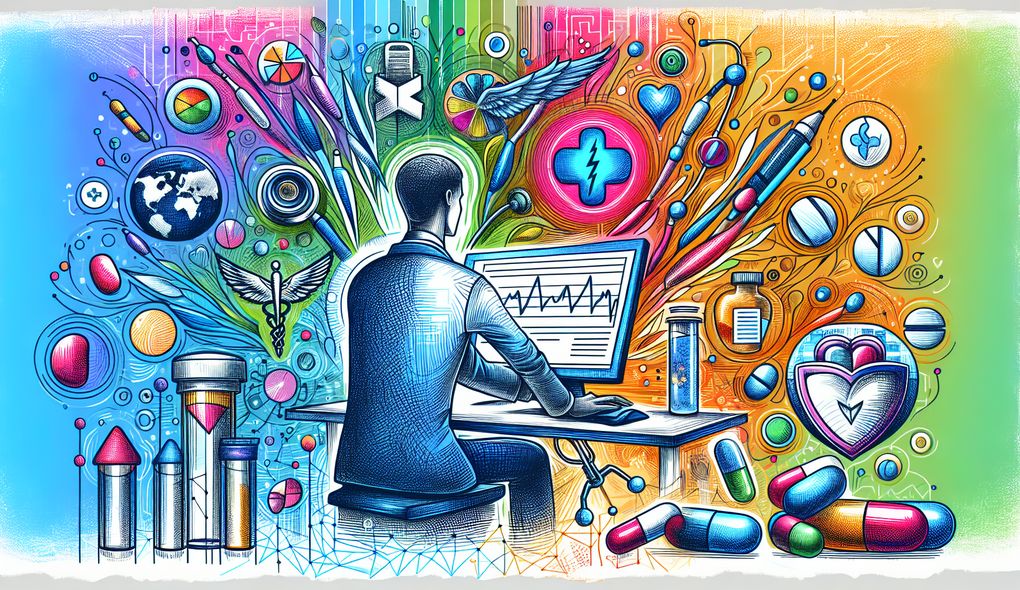Tell me about a time when you had to work with both technical and non-technical staff. How did you effectively communicate with them?
JUNIOR LEVEL

Sample answer to the question:
In my previous role as a healthcare systems analyst, I frequently worked with both technical and non-technical staff. One example was when we were implementing a new Electronic Health Records (EHR) system. I had to collaborate with doctors, nurses, and other clinicians to understand their workflow and how the system could enhance patient care. To effectively communicate with them, I made sure to speak their language and avoid technical jargon. I also used visual aids and demonstrations to help them grasp the concepts. Regular meetings and open communication channels were crucial to address any questions or concerns they had. By building strong relationships and actively listening to their feedback, I ensured that their needs were met and the system was successfully implemented.
Here is a more solid answer:
During my time as a healthcare systems analyst, I had the opportunity to work on a project that required collaboration between technical and non-technical staff. We were tasked with implementing a new EHR system for a large hospital. To effectively communicate with the diverse stakeholders, I employed a multi-faceted approach. First, I conducted interviews and shadowed clinicians to gain a thorough understanding of their workflows and pain points. This enabled me to bridge the gap between the technical specifications and the practical implications for the end-users. I then organized interactive workshops, where I used visual aids and simplified terminology to explain the system functionalities and benefits. This approach helped in engaging the non-technical staff and addressing their concerns. Additionally, I established regular communication channels, such as weekly progress meetings and an online forum, to provide a platform for open dialogue and address any questions or issues promptly. As a result of these efforts, we successfully implemented the new EHR system, and the feedback from both technical and non-technical staff was overwhelmingly positive.
Why is this a more solid answer?
The solid answer provides specific details about the project and the candidate's approach to effectively communicate with both technical and non-technical staff. It demonstrates the candidate's skills in understanding workflows, simplifying technical concepts, and fostering open communication. However, the answer could be further improved by including measurable outcomes and showcasing the candidate's problem-solving skills in addressing challenges.
An example of a exceptional answer:
In my role as a healthcare systems analyst, I led a cross-functional team consisting of technical and non-technical staff to implement a comprehensive telemedicine solution for a large healthcare organization. This complex project involved integrating multiple systems, configuring workflows, and training staff on the new technology. To ensure effective communication with the diverse team, I first conducted a series of meetings with stakeholders to establish a clear understanding of their roles, goals, and concerns. I then created a collaborative online platform where team members could easily share updates, ask questions, and provide feedback. Regular progress meetings were held, allowing us to address any issues promptly and make necessary adjustments to the project plan. Recognizing the different communication preferences of technical and non-technical staff, I used a combination of visual presentations, technical briefings, and process flow diagrams to ensure everyone had a clear understanding of the project. Additionally, I actively sought feedback from the team and incorporated their suggestions to enhance the solution. As a result, we successfully implemented the telemedicine solution within the specified timeframe and budget, leading to improved patient access to care and increased efficiency in the organization.
Why is this an exceptional answer?
The exceptional answer provides a detailed account of a complex project where the candidate effectively communicated with both technical and non-technical staff. It showcases the candidate's leadership skills, proactive approach to addressing challenges, and ability to integrate feedback for continuous improvement. The answer also highlights the measurable outcomes achieved through the successful implementation of the telemedicine solution. This answer exceeds the expectations by providing specific examples and demonstrating a high level of competency in the required skills for the Healthcare Systems Analyst role.
How to prepare for this question:
- Reflect on past experiences where you had to work with both technical and non-technical staff. Think about the challenges you faced, the strategies you used, and the outcomes achieved.
- Develop a thorough understanding of the healthcare industry, its regulations, and clinical workflows. Familiarize yourself with common healthcare IT systems and data analysis tools used in the industry.
- Practice explaining technical concepts to non-technical individuals using simple language and visual aids. Focus on translating the benefits of technology into practical implications for end-users.
- Sharpen your collaboration and communication skills by engaging in group projects or workshops. Practice active listening, empathy, and building rapport with diverse stakeholders.
- Stay updated with the latest advancements in healthcare technology and telemedicine. Research successful case studies and best practices in implementing healthcare IT solutions.
- Prepare examples of past projects or initiatives that demonstrate your ability to effectively communicate with both technical and non-technical staff. Focus on measurable outcomes and problem-solving skills.
What are interviewers evaluating with this question?
- Communication Skills
- Collaboration

